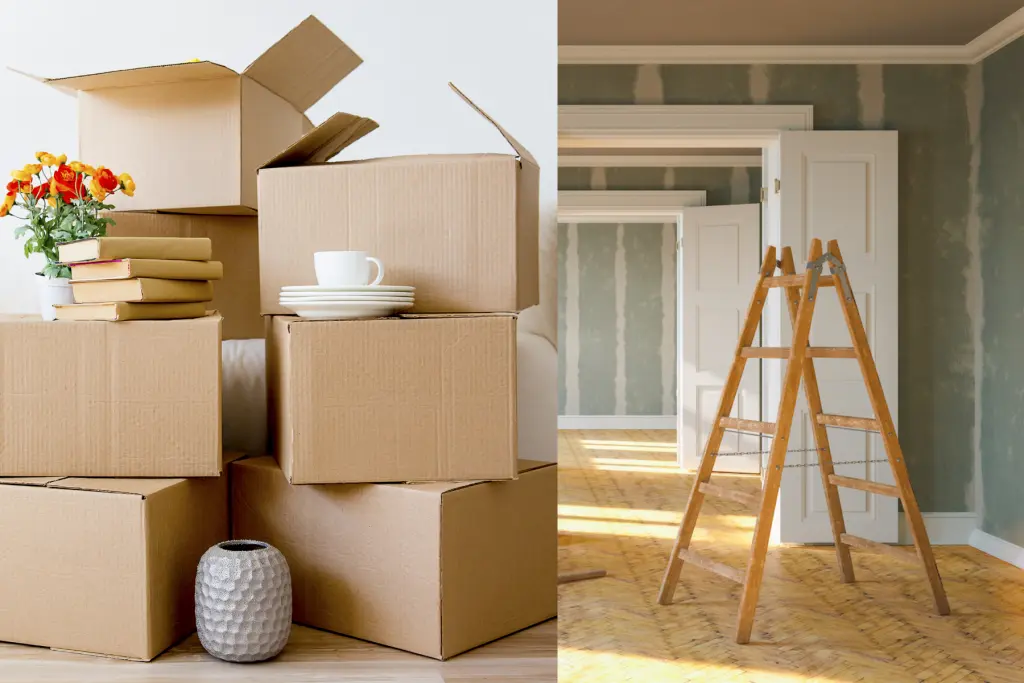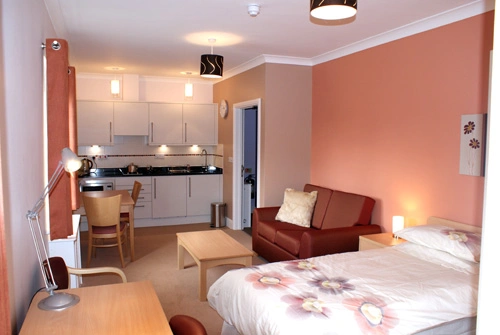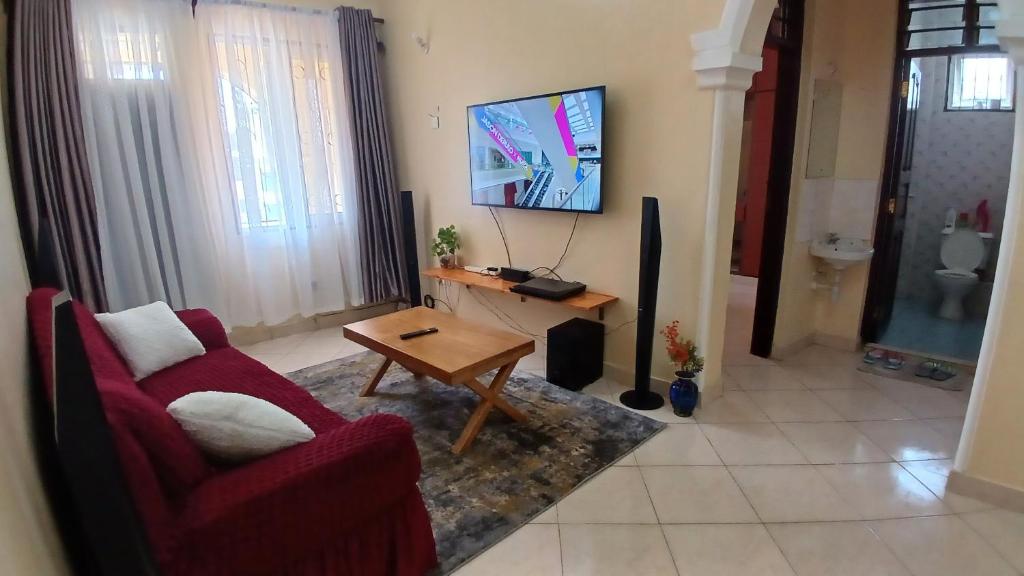As a homeowner in Nairobi, you may find yourself at a crossroads: should you move to a new home or renovate your current one? This decision can be daunting, as it involves significant emotional and financial considerations. In this comprehensive guide, we will explore the factors you need to consider when deciding whether to move or renovate. We’ll provide insights, pros and cons, and practical advice to help you make an informed choice that suits your lifestyle and budget.
Understanding the Decision: Move or Renovate?
Before diving into the specifics of each option, let’s clarify what moving and renovating entail:
Moving
Moving involves selling your current home and purchasing or renting a new one. This option allows you to change your living environment completely. Moving may be appealing if you seek a different neighborhood, more space, or modern amenities.
Renovating
Renovating means making improvements to your existing home, which can include anything from minor repairs and updates to significant structural changes. Renovation allows you to stay in a familiar environment while enhancing your home’s comfort and functionality.
The Emotional Aspect
Both moving and renovating can trigger a range of emotions. Moving often signifies a new beginning, but it can also involve leaving behind memories and attachments. Renovating allows you to create a personalized space, but it may also mean dealing with the stress of construction and disruptions.
Factors to Consider When Deciding
1. Your Budget
The financial implications of moving versus renovating are crucial. Here are some aspects to consider:
- Cost of Moving: Moving can be expensive, involving agent fees, closing costs, and moving expenses. Additionally, the real estate market in Nairobi can be volatile, and finding a suitable home within your budget may be challenging.
- Renovation Costs: Renovations can also be costly, depending on the extent of the work. Minor updates may be manageable within a limited budget, while significant renovations can quickly escalate.
Budget Comparison Table
| Expense Type | Moving Cost Estimate | Renovation Cost Estimate |
|---|---|---|
| Real Estate Agent Fees | 2% – 5% of sale price | N/A |
| Closing Costs | 3% – 5% of purchase price | N/A |
| Moving Company Fees | KSh 20,000 – KSh 60,000 | N/A |
| Renovation Costs | N/A | KSh 50,000 – KSh 1,000,000 (varies greatly) |
2. Your Current Home’s Value
Understanding your home’s market value is essential. If your home has appreciated significantly, selling it could provide a substantial return on investment. On the other hand, if the market is stagnant or declining, you might be better off investing in renovations to increase your home’s value.
3. Your Needs and Lifestyle
Consider your current lifestyle and future needs. Here are some questions to reflect on:
- Space: Do you need more space for a growing family, or are you downsizing? Moving might be the best option if your current home cannot accommodate your needs.
- Functionality: Are there aspects of your home that no longer work for you? Renovations can help address functionality issues, such as adding an extra room or updating the kitchen.
- Neighborhood: Are you satisfied with your current neighborhood? If you desire a change of scenery or better amenities, moving might be the right choice.
4. Market Conditions
The state of the real estate market in Nairobi plays a significant role in your decision. If it’s a seller’s market, you may get a great price for your home. Conversely, in a buyer’s market, you might find better deals on new properties, making moving more attractive. It’s essential to research current market trends and consult with real estate professionals.
5. The Impact of Renovations on Property Value
Not all renovations will provide a return on investment. Consider which upgrades will add the most value to your home:
- Kitchens and Bathrooms: Upgrading these areas tends to yield the highest returns. Potential buyers often prioritize modern and functional kitchens and bathrooms.
- Energy Efficiency: Investing in energy-efficient upgrades can attract buyers and reduce utility costs.
- Curb Appeal: Enhancing your home’s exterior can significantly impact its marketability.
6. Timing and Convenience
Consider the time it takes to move versus renovating. Moving involves packing, organizing, and adjusting to a new environment. Renovations can disrupt your daily life, but they may allow you to stay in your current home.
- Moving Timeline: The moving process can take weeks or even months. You’ll need to find a new home, list your current property, and manage logistics.
- Renovation Timeline: Depending on the scale of renovations, you may need to deal with construction for an extended period. This can be inconvenient, especially if you live in the home during the renovations.
Pros and Cons of Moving
Pros
- Fresh Start: Moving offers a chance for a new beginning in a different neighborhood or environment.
- Space: You can find a larger home or a property better suited to your needs.
- Modern Amenities: Newer homes often come with updated features and energy-efficient options.
- Community: A new location may offer better community resources, schools, and amenities.
Cons
- High Costs: Moving can be expensive and may involve additional hidden costs.
- Stressful Process: The logistics of moving can be overwhelming, from packing to finding a new home.
- Emotional Attachment: Leaving behind memories and familiar surroundings can be emotionally challenging.
- Market Uncertainty: The real estate market can be unpredictable, making it difficult to find the right property.
Pros and Cons of Renovating
Pros
- Customization: Renovations allow you to create a space that reflects your personal style and needs.
- Retain Familiarity: Staying in your current home means you won’t have to adjust to a new environment.
- Increased Value: Smart renovations can increase your home’s value and marketability.
- Potential Cost Savings: In some cases, renovating may be more cost-effective than moving.
Cons
- Disruption: Renovations can be disruptive and require significant time and patience.
- Hidden Costs: Unexpected issues can arise during renovations, leading to higher costs.
- Limited Space: If your home is already small, renovations may not provide the additional space you need.
- Time-Consuming: Depending on the scope of the project, renovations can take longer than anticipated.
Making the Decision
After considering the factors outlined above, you may still feel torn between moving and renovating. Here are some steps to help you make the final decision:
1. List Your Priorities
Create a list of what’s most important to you—whether it’s space, budget, or location. Prioritizing your needs will clarify your options.
2. Consult Professionals
Speak with real estate agents, contractors, and financial advisors. Their insights can help you understand the implications of your decision better.
3. Create a Pros and Cons List
Writing down the advantages and disadvantages of each option can provide a visual representation of your choices.
4. Take Your Time
Don’t rush into a decision. Take the time to reflect on your priorities and consult with trusted advisors.
Conclusion
Deciding whether to move or renovate is a significant decision for homeowners in Nairobi. Each option has its pros and cons, and the best choice depends on your individual circumstances, budget, and lifestyle. By carefully evaluating your needs and considering the factors discussed in this guide, you can make an informed decision that aligns with your goals and enhances your living situation.
If you’re ready to take the next step, whether it’s exploring moving options or planning renovations, request a free quote today! Visit this link to get started on your journey towards a new home or a beautifully renovated space. Your dream living environment is just a decision away!



